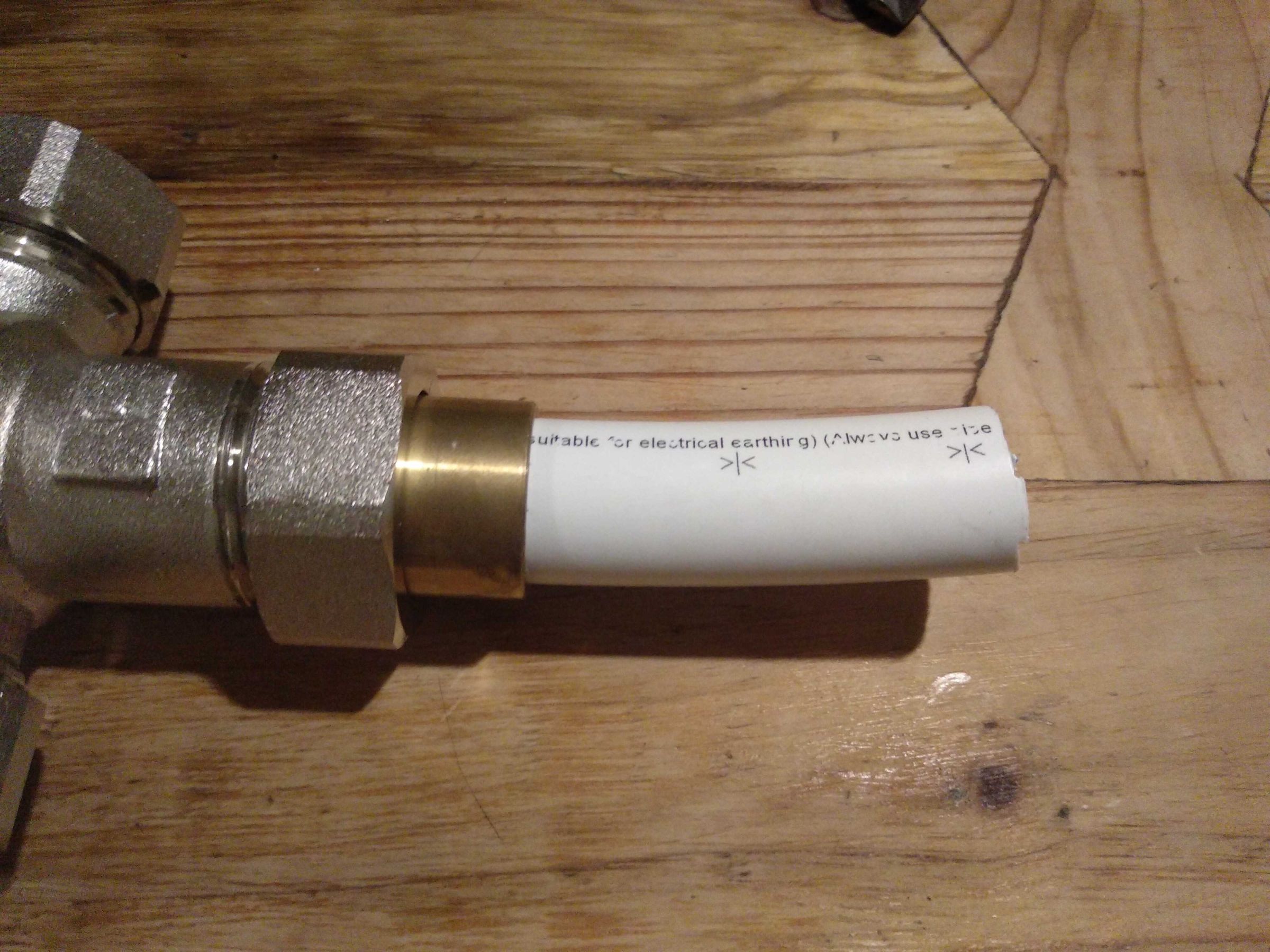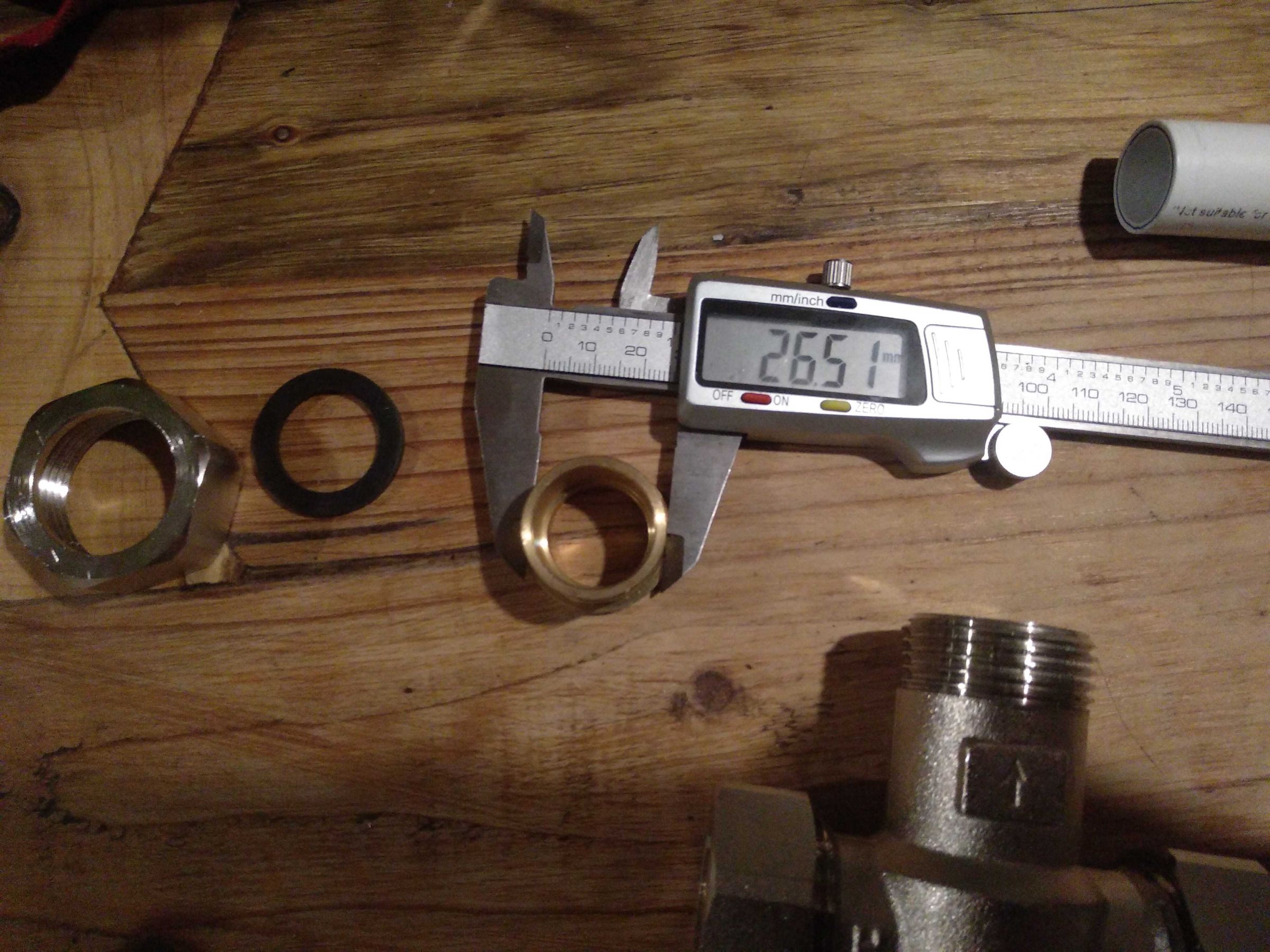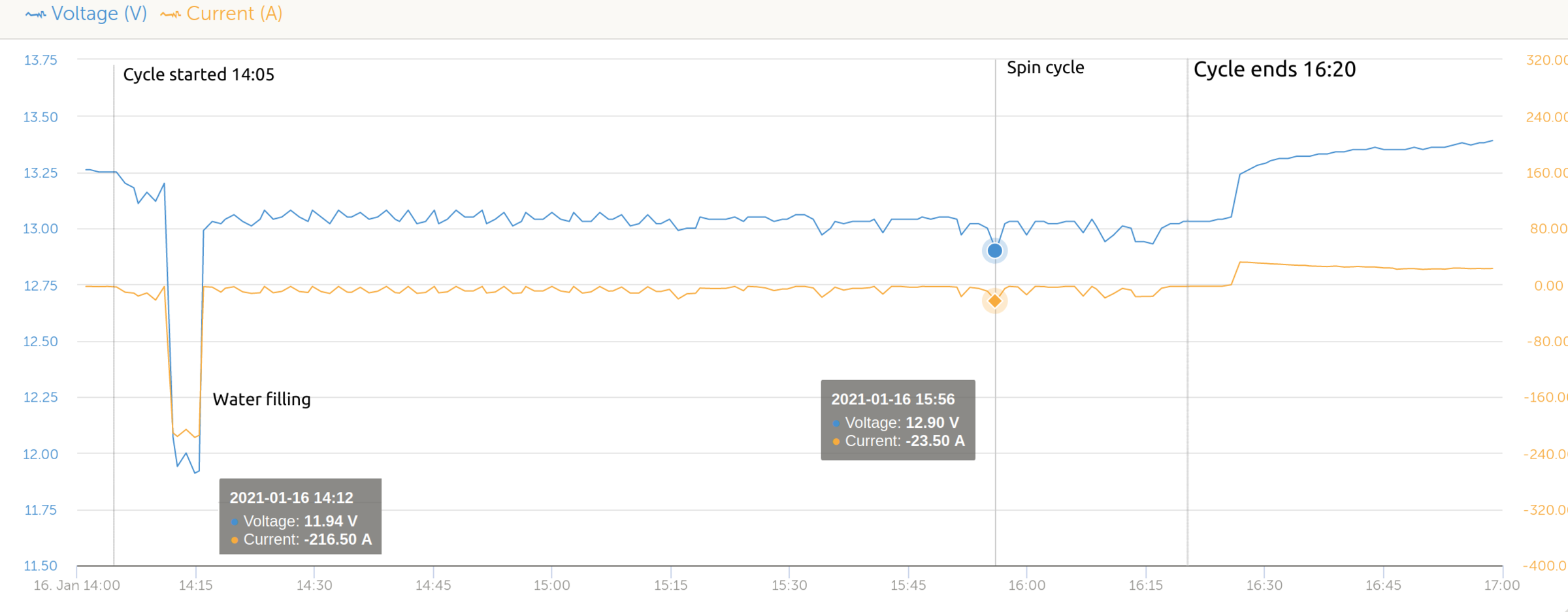-
Posts
1,179 -
Joined
-
Last visited
-
Days Won
1
Content Type
Profiles
Forums
Events
Gallery
Blogs
Store
Everything posted by jetzi
-
Are we suggesting that diesel/electric boats (diesel generator -> electric motor) are actually more efficient in practice than direct-drive diesel boats (diesel engine -> prop)? I would have guessed that the efficiency losses in the transfer of energy in a diesel/electric would have wiped out any comparison, but given that I use my engine primarily for generating electricity and only secondarily for motion, perhaps this isn't the case. A diesel generator is surely more efficient at generating electricity than an alternator on an engine, I mean I know it's pretty much the same thing but it is designed for this purpose and will always run at the optimum speed for this purpose. I figured that 6 months of having more than enough solar would still mean a diesel/electric boat would use less diesel overall than a diesel only boat. But perhaps this suggests that even without the solar diesel/electric offers efficiency gains? That's really interesting to me, because it is at odds with my intuition. I almost never switch off my engine in a lock, and the reason is simply that most of the reason I run my engine is for electricity and hot water. Motion is secondary. So there is no sense in turning off the engine to save 15 minutes of diesel only to run the engine for 15 minutes more once moored up in order to generate electricity.
-
Do you think this spike also represents a brief period of heating?
-
Surely it's too big to be 1" or 3/4" BSP? It's a pity that I can't just screw something directly to this, it seems like it would be a lot easier than soldering. I have solder and a blowtorch though, so I just need to get a short piece of copper pipe, then I can use pushfit connectors everywhere else.
-
Plumbing novice here looking for some advice! I bought a mixing valve that was "22mm compression", but it turns out that only the inlets are 22mm compression. The outlet is a 32mm screw thread, with a T shaped brass fitting that is sealed to the base of the mixing valve with a rubber O ring. I need to connect this to a 22mm pipe. 22mm pipe fits exactly into the brass T shaped fitting, but obviously that won't seal. My only thought is that perhaps 22mm copper pipe is meant to be soldered into that T piece, basically turning the end of a pipe into a screw fitting. Alternatively I wonder if I could get a 32mm flexible hose connector (like a tap connector) which would screw onto the valve. Do these exist? Hope someone can help!
-
The RYA site says the prerequisites for the Day Skippers is "5 days, 100 miles, 4 night hours on board a sailing yacht" I've been out on a sailboat before for 2-3 hours, but just did as I was told and I didn't really know anything or learn anything. So I think you need to have some kind of background in order to take the course. And sailing is quite another thing to motorboating, isn't it? Learning how to sail seems quite a lot more than just learning to handle a motorboat in open water?
-
Don't mean to doubt you, but are you sure that the reason the heating element doesn't come on is because you use hot water from the geyser? Or are you trusting that the "cold wash" button means the heater is disabled no matter the temperature? The heating element of the Hotpoint doesn't come on either if the water is at least at room temperature, but for @cairanvanrooyen's purposes he wants to be sure that it doesn't accidentally trigger I think.
-
I'm sorry, you are right and I apologise Alan. I realise that giving out advice here might make it sound like you're endorsing the idea that novices go out into dangerous boating situations with little training, and that could be potentially deadly.
-
Roughly speaking, wouldn't an electric drive only use as much power as you give it - better to have and not need than need and not have? I guess it's about the most efficient running speed. So, isn't the ideal a motor/prop combination that runs most efficiently to propel your boat at 3-4mph in still water, but is capable of double (or triple) that power if you get into trouble on a river?
-
Could anyone explain in a nutshell what the problem is with getting power to the propellers? Are people putting too-large motors with too-small props?
-
Thanks Alan. I think the RYA day-skippers sounds like a great idea to learn about what coastal cruising is really like and whether or not it's for me. I will look into it.
-
Such a strange attitude, everyone is a first timer once and the way they prepare is to find out from people who know more than they do. Don't worry, I'm not planning on doing it, at least not any time soon and definitely not without a lot of research. I'm not going make a comment on an internet forum, buy a radio and sail out to sea! This thread is all about what's involved with taking canal boats into estuaries and I've found it really interesting. I'm mostly curious what would be the safest sea/estuary passage for a beginner as a starting point, that's why I ask. To be honest I doubt I'll ever actually do anything like it.
-
I'm from Norfolk so the Wash appeals to me the most. The shortest journey I can see on the map is to go from Boston to go up the River Welland. It looks like a short enough trip to be pretty confident that there won't be a change in weather. How much of an adventure would this be for a first-timer? Would I need a pilot for this? VHF radio? Navigation charts? Do I have to pay for locks or access (other than the gold license for the river)? Anybody done this?
-
So you accept that biofuel is carbon neutral, which is great. I think you are essentially saying that carbon neutrality is not good enough - our energy sources must actually sequester carbon? From this point of view solar, wind, etc are all "not green" because they don't actually reduce the amount of carbon in the atmosphere (and in fact might increase it because of the manufacture and maintenance of these energy sources). The vast majority of the carbon in sewerage ends up as atmospheric carbon. The "solids on the surface of the planet" also decay. Whenever you look just one piece of the carbon cycle it's going to look like it isn't a closed system. Am I saying it's perfectly 100%, no I'm not, there is some nuance to it. Sure, some of the biomass of today might end up permanently sequestered as fossil fuels - but in time scales that are perfectly irrelevant to human civilisation. Last point, we can only eat so much. Poverty/world hunger notwithstanding we can't "eat to victory" even if it really did sequester carbon as you suggest. We could (and there are efforts to) grow biofuels (which is just another word for biomass actually) and then bury it underground, but to make up for the gigajoules and gigajoules of energy we have released from the earth since the industrial revolution would be an incredible quantity of biomass (consider how much more energy is in a block of coal than a chunk of wood!) Sequestration is basically the argument that we can just make artificial coal and oil to replace all the coal and oil we are using. Otherwise known as "greenwashing". Not quite right, no, but close enough. Growing more green stuff is indeed better for the environment because of the temporary carbon sequestration - and biofuels are green stuff for most of the cycle. Burning hydrocarbons are primarily bad because they increase the carbon content of the atmosphere. Biofuels decrease it while growing, and then return to neutral once burned. A wind farm on the other hand doesn't even reduce carbon content temporarily, because they don't grow! By the way. I don't actually think that biofuels are the answer. I'm just trying to convince you that they are in fact a green energy source in the sense that they are carbon neutral - and I think that you agree with that
-
Fair enough. I cook year round so I would need a summer alternative. Maybe I could skip needing an oven and just have a couple of gas burners in the kitchen along with the range. I love the idea of a central heat store that could be heated with energy from any combination of solar, back boiler or coolant on your genny. When I was new to boating I thought that's what a calorifier was, and that you could draw heat out of the calorifier coils to power your rads. Unfortunately it turns out the coils are too small for it to work that way around! Would be interested to know why a heat store is different, is there a brand or model name you could point me to so I can read up about it? Do post a topic when you have it all set up and explain how it went, I'm sure a lot of us are curious.
-
What about cooking when the weather is hot? Do you fire up the range?
-
I'd love to have a cooking range but I wonder how it would cope in summer. Doesn't it become unbearably hot and/or a lot of effort to make a fire whenever you cook? Peter was it you who also has a diesel drip fed bubble stove? Ideally it would be great to have a range that could run off solid fuel OR diesel. Do you have gas on your boat? It would take up more room but perhaps a range and a gas cooker is what's required. So the diesel generator is water cooled and can be connected to a calorifier? That would be wonderful - I didn't know you could get those! Is a heat store the same as a calorifier? I thought you had a Whispergen Stirling engine Peter?
-
Yes. This is part of the nuance. That's why I'm careful to say we need to stop extracting fossil fuels entirely in order to be carbon neutral, not just stop burning them. As I say, our giant population is subsidised by fossils, and a lot of that subsidy goes towards industrialised agriculture. And yes it would be very hard or impossible to sustain 8 billion without industrialised agriculture. But muddying the waters with this nuance means that people fail to understand the basics of the carbon cycle, which is that the carbon you eat is carbon you remove from the atmosphere. The reason that's important to understand is because the solutions might not need to include genocide. It is possible to grow food without fossil fuels - but the carbon cycle is a fact of life. We aren't going to have to stop breathing, because breathing is at its core a carbon neutral activity when looked in the context of the whole carbon cycle instead of just the bit where CO2 is exhaled. It is possible to have a carbon neutral cyclist fed only with organically grown food transported to his nuclear power lit local Tesco in a biofuel truck.
-
Where does the carbon you breathe out come from? The plants/animals you eat. Where does the carbon that makes up the plants/animals you eat? The atmosphere via photosynthesis. In other words all the carbon you exhale was recently removed from the atmosphere. It's a closed cycle and it's carbon neutral. Food is a kind of biofuel. Population size is irrelevant if that population isn't digging up fossil fuels (of course our giant population is a direct result of subsidisation by fossil fuels). I know you were being a little facetious but its also the most pernicious misconception about sustainable energy. If we quit fossil fuels, nothing else matters in comparison.
-
That makes sense to me. Thanks for being part of the solution - I would love to be in your "boat" as it were. If I ever had the luxury of building a boat it would without doubt be an electric (or biodiesel-electric)! Propulsion is no problem as you point out, but heating can't be done by solar - quite obviously if you think about it, if the sun wasn't heating your boat effectively enough directly then it's hardly going to work to convert the light to electricity and then to heat! Burning wood for heat is the clearest example of biofuel.
-
Thanks for the correction! Apologies for the mistake. You won't be making any more CO2 anyway. That's my overall point. Whether you burn it or eat it, the carbon is released just the same. I definitely support eating less animals for a number of reasons. If we didn't have to grow feedstuff for animals we'd have a lot more land available - for both food and for biofuel. Biofuel is a clean energy source, in the sense that it's carbon neutral. Biofuel could help us transition to clean energy sources much quicker because it means we can use our diesel engines. I don't think biofuel is the ultimate solution but it's a good stepping stone. Yes local air pollution remains a problem. No I don't believe the market would tolerate food shortages, but you're right we don't have the land available to grow enough biofuel to run our energy needs. Nor for that matter do we have the land available to put up enough wind farms. I think offshore could be a good solution - someone earlier in the thread mentioned algae for example. Here's a great "reality check on renewables" TED talk: https://www.youtube.com/watch?v=E0W1ZZYIV8o I agree by the way that converting to electricity is the best plan, it gives us options because we can generate electricity in whichever way makes the most sense as our technology and economic situation evolves. But I'm afraid the best way we have is nuclear, or maybe geothermal. I don't think people really understand how woefully inadequate renewables are at this point. While talking about inadequacy - heating things off batteries (space and water heating) is simply not viable at this point. Battery powered rechargeable boats are fine for day cruises in the summer but the liveaboard lifestyle in the UK is entirely subsidised by high-density hydrocarbon fuel I'm afraid. We'd need to use biofuel unless we made some dramatic improvements in energy density of batteries that to be honest I think are too dramatic to be realistically forthcoming. Maybe hydrogen could work like @peterboat suggests. Though, it's horrifically explosive, expensive to make and incompatible with all the equipment we currently use. It does have the fantastic advantage of being able to be made easily from electricity - so if we had a really abundant source of electricity (such as nuclear) it could be an option.
-
Can I have a go? This is how I understand it. Conservation of mass: carbon isn't created on earth, just moved around. Plants are made of carbon from the atmosphere. Animals are made out of the carbon from plants. While the carbon is in biomass, it's not causing a greenhouse effect, but whenever plants and animals rot or burn, their carbon is released straight back into the atmosphere. All plants and animals die so biomass is all temporary and it's carbon neutral. Nowadays oxygen is about 20% of the atmosphere. Originally there was no free oxygen in the atmosphere - all of the oxygen was combined with carbon. This can't support animal life. Oxygen is reactive and doesn't really exist by itself except as produced by plants. Two billion years ago a large amount of the atmospheric carbon was naturally sequestered when ancient biomass became fossil fuels. That great oxygenation event is the source of the majority of the free oxygen that we breathe today. Now we are un-sequestering that carbon and converting the atmosphere back towards the ancient one. Pretty much everything that we do is carbon neutral except mining fossil fuels. If we stopped mining fossil fuels, the world would become carbon neutral overnight. There's nuance of course. Methane (CH4) is worse than CO2, cement production also releases carbon from non-fossil sources, local air quality, etc. But the basics is conservation of mass. If you accept this then it's easy to see why biofuels are good - they are carbon neutral while sequestering carbon the entire time they are being produced and stored. Biofuels are a leveraging of photosynthesis - a natural solar panel. I'd say the biggest problem with biofuels is the amount of land that they take up. But I think they can and should form a part of the transition. If we can stop using oil 1 year sooner because of biofuels it's worth it - they are infinitely better for the planet than fossil.
-
I ran a wash today and I have some results for you. Prior to the test I charged up the battery to 86% SoC. Normally I do washing when cruising or on sunny days, but to try to get some really accurate figures I left the engine off and turned off the solar. I also turned off all loads in the boat except the water pump, the inverter and battery monitoring equipment. At rest this was using about 2.5A at 13.4V. I did a "Synthetics 60deg cycle", with cold wash button pressed and spin RPM turned down to 800. The machine said it would take 1h 40min and it actually took 2h 15min. I used actually cold water, ambient temperature is about 7 degrees. Here are the results recorded by a Victron BMV712 battery monitor. After the cycle the battery was at 80% SoC and had consumed 38Ah in total for the cycle (about 500Wh). Throughout the wash cycle the motor was using bursts at 160W, and 300W maximum (when starting the spin cycle). Except for one important anomaly. While filling there was a big spike, and the only explanation is that the heating element came on - I definitely had the cold wash button pressed, but perhaps if the water is below a certain temperature it does kick in? I took Cruising the Cut guy at face value when he said the cold wash button totally disables the heater. The heater took 216.5A / 2600W for about 3/4 minutes, which means that 4 minutes accounted for 40% of the entire cycle! At least it only happened once, right at the start . So that's that, hope it helps. This kind of does suggest to me that if you buy this machine, you either need to do some surgery to disconnect the heater, or you're going to need to attach the inlet to warm water to prevent the heater coming on. Or, get a machine with a "true cold wash" button. But it may not be only this machine that does this - I'm not sure how you could find out whether the button is really effective or not. In any event, as someone said above you probably don't ever want to do washing below 10 degrees anyway - so you probably want to find a way to connect hot water. I also filled my water tank before and after the cycle, and I can also say that it used about 45-50 litres of water to do a 7kg load. At some point I'll try to figure out what temperature the water needs to be at to prevent the heater coming on - my guess is 15-20 degrees.











